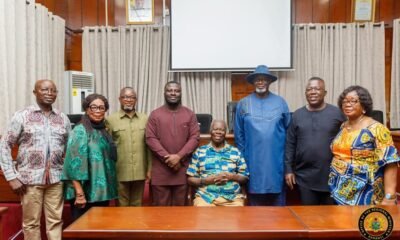Relationship
Marriage is a cultural union

Marriage is a cultural union
Marriage is often considered a cultural union; because it is a social institution that is deeply rooted in cultural norms and traditions. In many cultures, marriage is not just a union between two individuals, but a union between families, tribes, or even entire communities.
Marriage is a cultural union or institution that varies across different societies and cultures, but it typically involves certain common elements, such as a public declaration of commitment, a legal contract, and a religious or social ceremony.
In many cultures, marriage is also closely tied to religious or spiritual beliefs, and may involve elaborate ceremonies and rituals that reflect these beliefs. For example, in African and Christian dominated cultures, the wedding ceremony is usually seen as a sacred union between a man and woman, and involves a number of traditional rituals and customs that symbolise the couple’s commitment to each other and to their shared spiritual path.
The cultural significance of marriage varies widely across cultures, but some common themes include the formation of social bonds, the establishment of a family unit, and the preservation of cultural values and traditions. Marriage is often seen as a way to ensure the continuation of a particular culture or way of life, as well as a way to transmit cultural knowledge and values to future generations.
Generally, marriage can be seen as a cultural union because it is deeply embedded in the social and cultural fabric of many societies around the world. It serves as a powerful symbol of social cohesion and continuity, and reflects the values and beliefs of the communities in which it is practised.
In Christianity, marriage is often viewed as a sacred covenant between a man and a woman, established by God for the purpose of companionship, procreation, and the establishment of a family unit. While marriage is viewed as a union between two individuals, it is also seen as a union between God, the couple, and their community. The Christian view of marriage as a cultural union is rooted in the belief that human beings are created in the image of God and are therefore endowed with the capacity for love, relationship, and community.
Marriage is seen as a reflection of the triune nature of God, who exists in a perfect relationship of love and unity between Father, Son, and Holy Spirit. Christian teachings emphasise the importance of fidelity, commitment, and self-sacrifice in marriage, and stress the importance of maintaining a strong and healthy relationship between spouses.
In many Christian traditions, marriage is also seen as a sacrament, a sacred rite that confers spiritual grace and blessings on the couple. The wedding ceremony is often conducted in a Church or other religious settings, and may involve rituals and customs that reflect the couple’s Christian faith and commitment to each other.
Essentially, the Christian view of marriage as a cultural union emphasizes the importance of love, commitment, and community in the establishment of a lifelong partnership between a man and a woman. It is seen as a sacred covenant between God, the couple, and their community, and serves as a powerful symbol of the values and beliefs of the Christian faith.
To be continued …
Source: Excerpts from ‘Preparing for a Happy and Fulfilling Marriage’ Book by REV. COUNSELOR PRINCE OFFEI (Psychotherapist and Marriage Therapist). https://counselorprinceass.wixsite.com/edu-counseling-psych
https://princeoffei22.wixsite. com/website-psychologist
https://princeoffei22.wixsite. com/website
COUNSELOR PRINCE & ASSOCIATES CONSULT (CPAC COUNSELLOR TRAINING INSTITUTE)
Relationship
The role of employment status, wealth, geographical location in divorce
Several research findings have identified factors likely to account for divorce. These factors include (but are not limited to):
1. Employment Status and Income Levels of Individuals
Several research on the employment status of married individuals have identified how it influences marital stability. If the husband is employed, the likelihood of the marriage ending in divorce is low.
The is because, as the head, he would be in a better position to provide for the family’s needs, strengthening the family and increasing their standard of living (Lee, unpublished).
On the contrary, women who are employed are at risk of having a higher divorce rate, particularly when they find themselves in unhappy marriages.
This is because they can afford to be independent and cater for their children (Becker, Landes & Michael, 1977; Oppenheimer, 1997; Sayer & Bianchi, 2000). Moore’s (1994) argument also supports the fact that women’s divorce risks increase as they find themselves in highly time-demanding occupations outside the home. This is because they might be unable to devote ample time to their spouses and children.
Despite these findings, I know of a good number of women who are doing their best to maintain some balance between their married life and their work. I highly commend such women for their extra efforts on behalf of their families.
2. Wealth
Research shows that the individuals’ wealth status could either increase or decrease the probability of divorce. Some scholars (Kurderk, 1993 and Rootalu, 2010) indicated that when individuals are more affluent and wealthy, marriage stability is compromised because couples could easily afford the costs involved in the divorce process.
Others also suggest that individuals who are not wealthy (especially women) are at lower risk of divorce than more prosperous women (Ambert, 2002).
3. Geographical Location or Type of Residential Place
Geographic location and its characteristics could impact your marriage’s stability. Several studies on the location of residence have shown that married couples who live in urban communities are more likely to experience divorce than their rural counterparts (Adegoke, 2010; Adedokun, 1998).
According to Takyi (2001) and Moore (1994), urbanisation undermines African marriages.
Characteristics dominant in urban communities, such as the preference for conjugal union over the extended family and the increasing number of women in restrictive and time-consuming employment setups, have been argued to weaken the foundation of families and marriages.
This is because the conjugal family type does not allow for the involvement of other extended family members except for the immediate family (nuclear family). The immediate family is mainly made up of the married couple and their children; hence, there is less opportunity for the involvement of other members of the other family.
Indeed, it matters a lot how much your in-laws are involved in your marriage (in a healthy way, without much interference).
Modernisation in Africa is destroying the benefits that could have been derived from couples’ healthy relationships with the extended family.
Oppong (1992) supported this argument that African modernisation has led to the type of urbanisation, encouraging wide separation from extended families. Unfortunately, urbanisation supports an individualistic living arrangement (devoid of considerations for other families).
It is not surprising that a good number of researchers confirm that urban divorce rates exceed rural areas’ rates.
To be continued …
Source: Excerpts from “PREPARING FOR A HAPPY AND FULFILLING MARRIAGE: Everything You Need to Know Before You Say ‘I Do’” Book by REV. COUNSELOR PRINCE OFFEI (Psychotherapist, Lecturer, and Marriage Therapist). ORDER BOOK NOW: https://selar.co/preparing-for-a-happy-and-fulfilling-marriage
https://princeoffei22.wixsite. com/website-psychologist
https://princeoffei22.wixsite. com/website
https://princeoffei22.wixsite. com/author
COUNSELOR PRINCE & ASSOCIATES CONSULT (CPAC COUNSELLOR TRAINING INSTITUTE)
Relationship
When the tides change (Pt. 2)
Psst! Psst! Lean in closer… closer! Now listen, silence is golden, or so they say.
But when the Tale Bearer arrives with news from yonder, that golden silence suddenly turns into a shiny distraction you cannot ignore. So here I am, bearing tales from the gods, hot, fresh and ready for your ears!
Have you heard? Wonder Boy’s new status has him soaking wet like a sponge at a waterpark. And, oh boy, is he loving it! Ehem! Now, he is serenading us with a tune that has gotten us laughing and jeering mockingly ‘Johnny Just Come’, Johnny just come. Hehehe!
Who knew the rulers of the mighty kingdom of Umofia are living it up like royalty, while the rest of us are out here playing catch-up with life? Ah, life, the greatest comedian, always leaving us laughing, but with tears in our eyes.
Come to think of it, Umofians, the gods are clearly watching over us and this is their way of saying ‘wake up, Umofians! ‘He who does not see the clouds cannot predict the rain’. Well the clouds are gathering, pay ye heed.
Now, tell me, if our rulers have managed to build themselves a palace in the sky, should we, the children of Umofia, not ask for our fair share of the clouds? Should we not demand our own seat among the stars? Who knows, perhaps soon we shall all be sipping palm wine under the shade, enjoying the breeze together as equals.
Honourable Wonder Boy, if you think you are too small to make a difference, try spending the night with a mosquito. We the Umofians gave you a seat at the table of the rulers to speak on our behalf because we believe in you.
A word to the wise is enough, now show us you are not just another ‘Johnny Just Come, but the one who can stir the pot and serve justice hot! This is your moment, do not let it pass you by!
Tell your people that Umofians gave them the power, they should remember; power is like salt—use it too much, and it will spoil the whole food. Tell them oo, the people can snatch the power back quicker than a hare can outrun a tortoise.
Ah well! My elders always say, “Home affairs are best kept behind closed doors, not shouted from the public square.” So, I shall take my leave now before I turn into the village crier.
Until next time, keep your ears open.
With Eyram, the Tale bearer.







